Pending sales, new listings, and closed sales all increased month-over-month. However, active inventory still remains low when compared to this time last year. Average days on market decreased month-over-month, showcasing that buyer demand remains strong.
May’s vital statistics for all homes – detached single family (DSF) and attached single family (ASF) combined – included:
- The average price for homes was up 2.68% compared to the previous month and down 2.33% from May 2022.
- The average days in the MLS were down 21.43% from the prior month and up 144.44% from a year ago. The median days in MLS dropped from 7 days to 6 days month over month.
- Active listings at months-end were up 13.16% from April and up 43.15% from this time last year.
While new listings increased month-over-month to 5,180, we are still down significantly from this time last year when we had 6,810 new listings. Looking at data from the past 10 years, inventory this time of year tends to be in the mid-7000s. Due to this lack of inventory, buyers are becoming fatigued and are waiting for their “perfect” home to come on the market. When finding the right house, many buyers are still not rushing to submit offers. Sellers are becoming more realistic and we are seeing more price reductions. Some sellers are still receiving multiple offers when priced appropriately, but not as severe as in 2020-2022 as single family homes selling for multiple offers are going for 3.5% above asking price on average. The market continues to have hot and cold pockets, especially for single family homes. Two similar homes in different neighborhoods can have very different results, one may receive multiple offers, and the other may sit on the market with multiple price reductions. If you need any advice or assistance navigating our real estate market, contact me today at 303.710.5817 or ladawn.sperling@cbrealty.com. I am never too busy for your referrals.
This update is based on information provided by the Denver Metro Association of Realtors® for the period of May 1, 2023, through May 30, 2023, for the following counties: Adams, Arapahoe, Boulder, Broomfield, Clear Creek, Denver, Douglas, Elbert, Gilpin, Jefferson and Park.

 Facebook
Facebook
 X
X
 Pinterest
Pinterest
 Copy Link
Copy Link
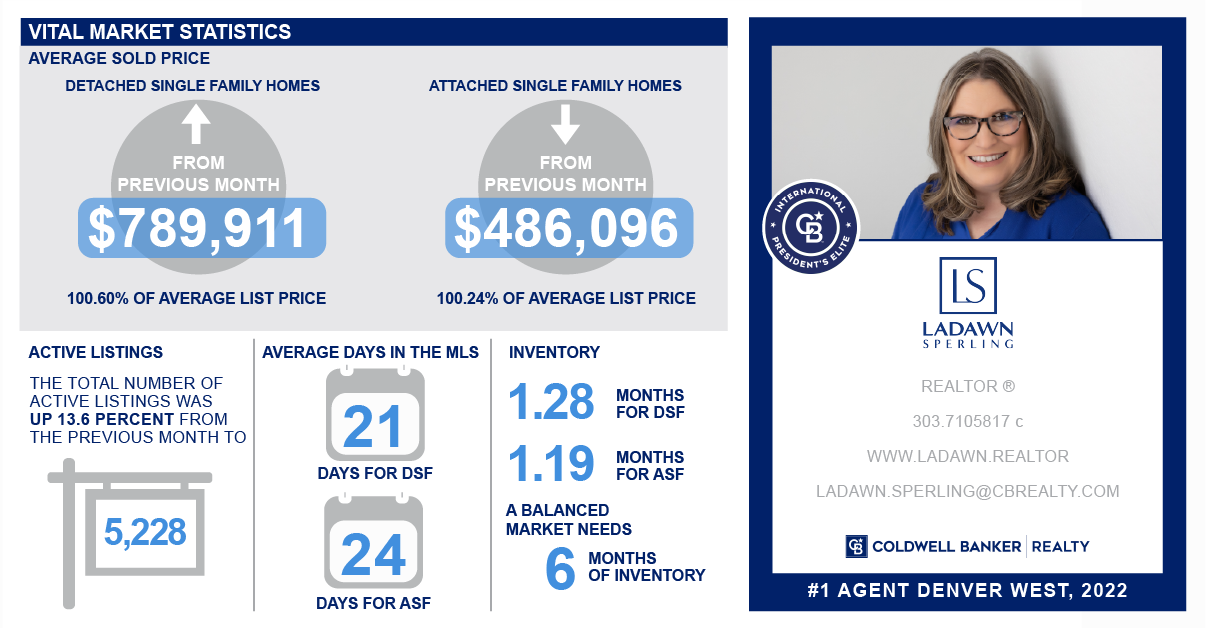



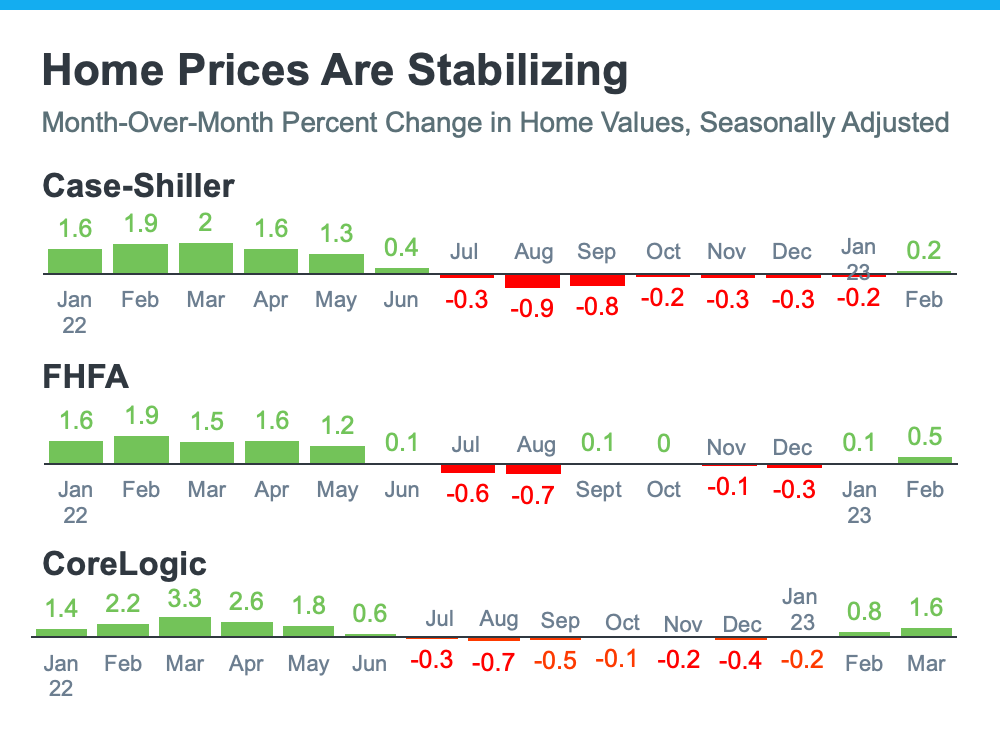



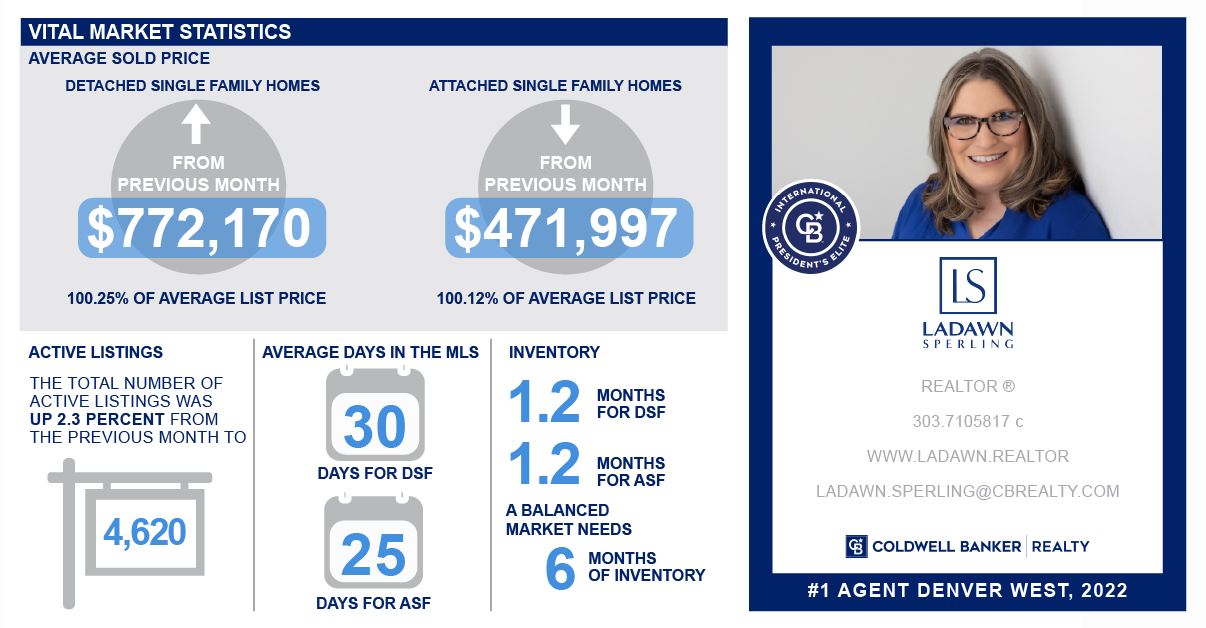


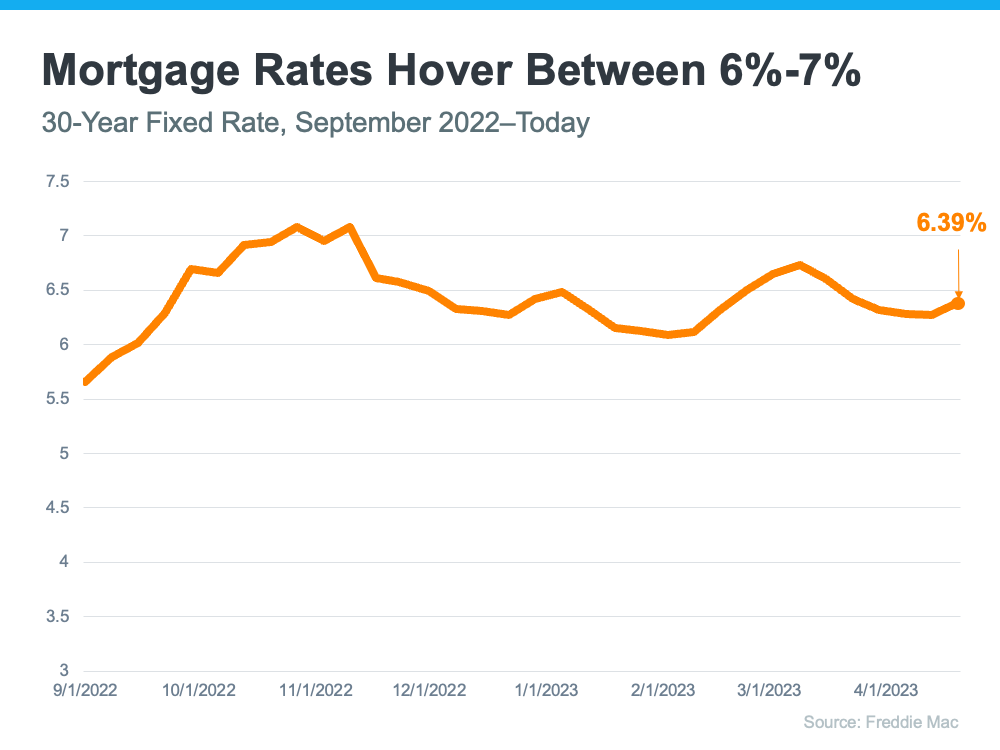
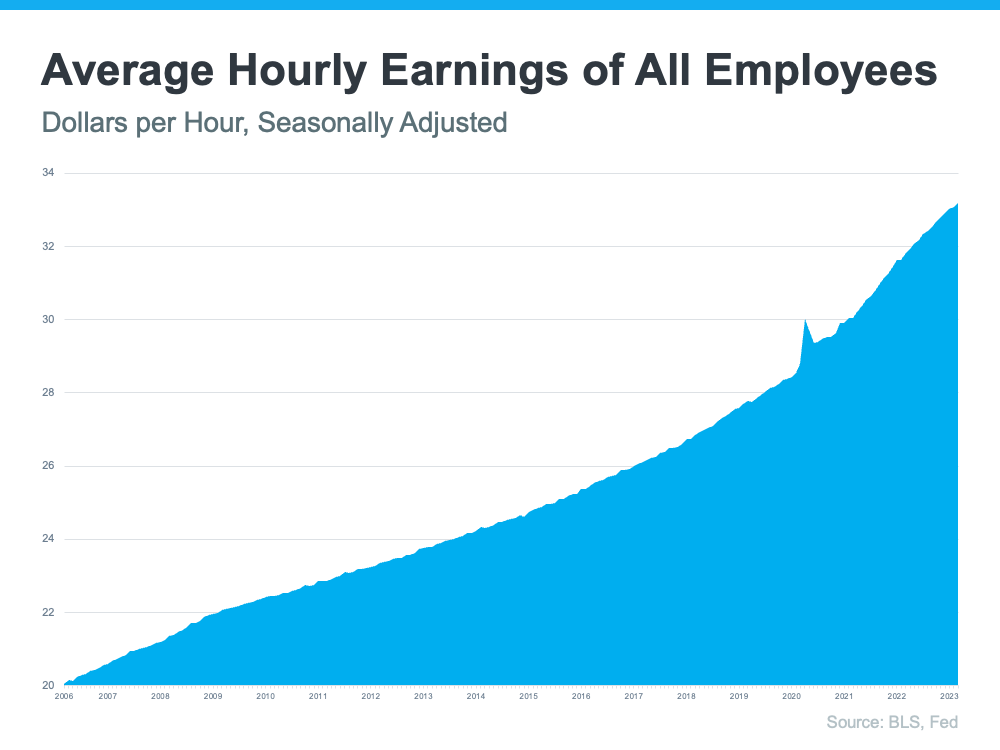


 23YV0V_CDO_3/23
23YV0V_CDO_3/23